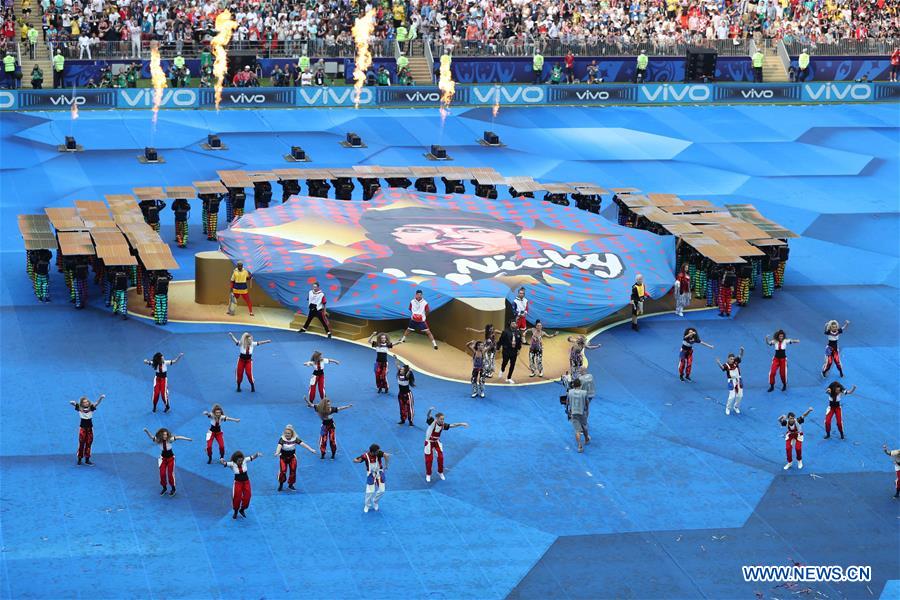Chinese brands score big at Russia World Cup
 0 Comment(s)
0 Comment(s) Print
Print E-mail China Daily, July 18, 2018
E-mail China Daily, July 18, 2018

The national team wasn't there but that didn't stop Chinese companies orchestrating an advertising bonanza of unprecedented proportions at the recently concluded FIFA World Cup.
Over 100,000 Chinese spectators and tourists ventured to Russia for the finals, but it was some of the country's biggest brands that really made their presence felt.
Among the World Cup's 17 commercial partners, seven were from China, including official FIFA partner Wanda Group and three tournament sponsors-electronics company Hisense, dairy giant Mengniu and smartphone brand Vivo, which boasted a historic first in Russia.
Vivo joined the performance of the Official Song before Sunday's final between France and Croatia at Luzhniki Stadium in Moscow, marking the first time a Chinese smartphone brand had featured in a closing ceremony at the tournament.
When Will Smith, Nicky Jam and Era Istrefi performed World Cup theme song Live It Up, the background of the stage was lit up with Vivo's logo-the first time FIFA has allowed such brand exposure during a closing ceremony.
"The cooperation with FIFA is a milestone for Vivo's brand," said Deng Li, the vice-president of Vivo's branding department.
"Through the World Cup, we want to express our philosophy of the pursuit of perfection to every customer. We also want to provide every user with an extraordinary brand experience in order to let more people love the Chinese brand."
In 2017, Vivo signed a six-year partnership with FIFA to sponsor the 2018 and 2022 World Cups as the company steps up efforts to boost its global exposure.
Under the deal, Vivo also launched a customized FIFA World Cup phone and its logo appeared on pitchside advertising boards during every match, and rolled out photography and music-themed activations to engage consumers.
"Soccer is a sport full of passion and moments of wonder, creating happiness for millions of people," said Ni Xudong, senior vice-president of Vivo, after signing the deal.
"The spirit of soccer is about constant progress. Vivo hopes to strongly associate itself with that spirit."
FIFA's Secretary General, Fatma Samoura was impressive with the involvement of more Chinese companies.
"We can see Chinese companies are keeping the consistent improvement and innovation. Their efforts and ambition have attracted our attention.
"Football and technology are coming closer by the day, on and off the pitch, and it is a great moment to start a partnership of this nature with the leading global smartphone brand. We are very excited to be working closely with Vivo and keen to see their involvement in the FIFA World Cup and FIFA Confederations Cup."
Wanda also enjoyed high visibility in Russia. In 2016, the multinational conglomerate became FIFA's first top-tier Chinese partner in a deal that covers this World Cup, the 2022 edition in Qatar, the 2026 tournament in North America and the 2030 finals.
Mengniu, China's second-largest dairy company, signed up for the finals in December 2017.
Hisense, meanwhile, is no stranger to global sporting events, having sponsored soccer's 2016 UEFA European Championship, the Australian Open tennis tournament and top-flight German soccer club Schalke.
"Chinese companies spotted the opportunity for a relatively cost-effective way to get their brands in front of billions of global eyeballs," said Simon Chadwick, professor of sports enterprise at Salford University in the UK.





